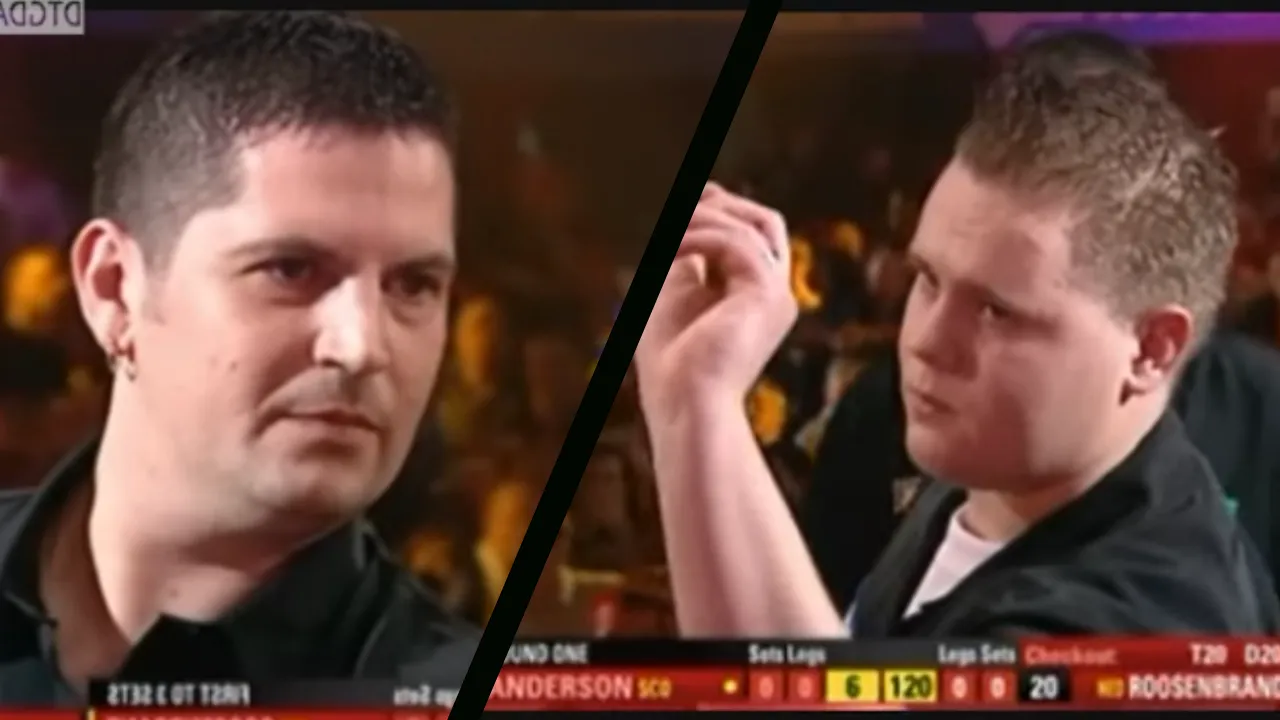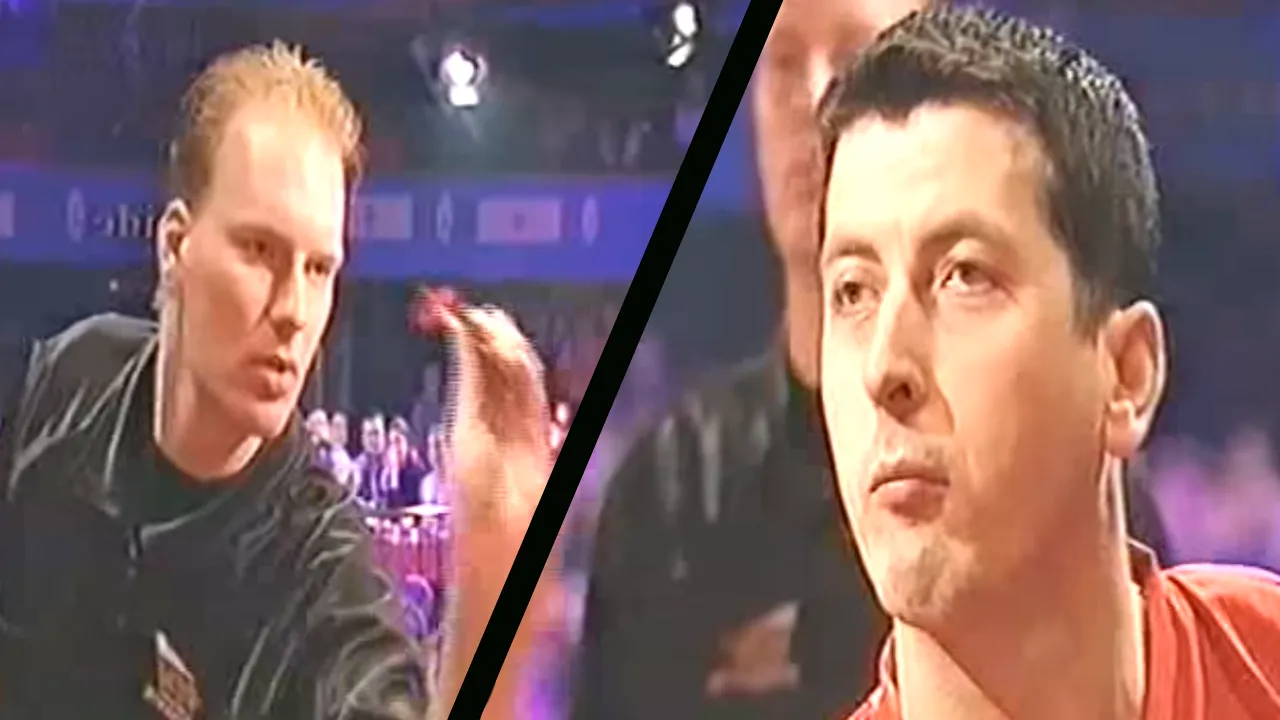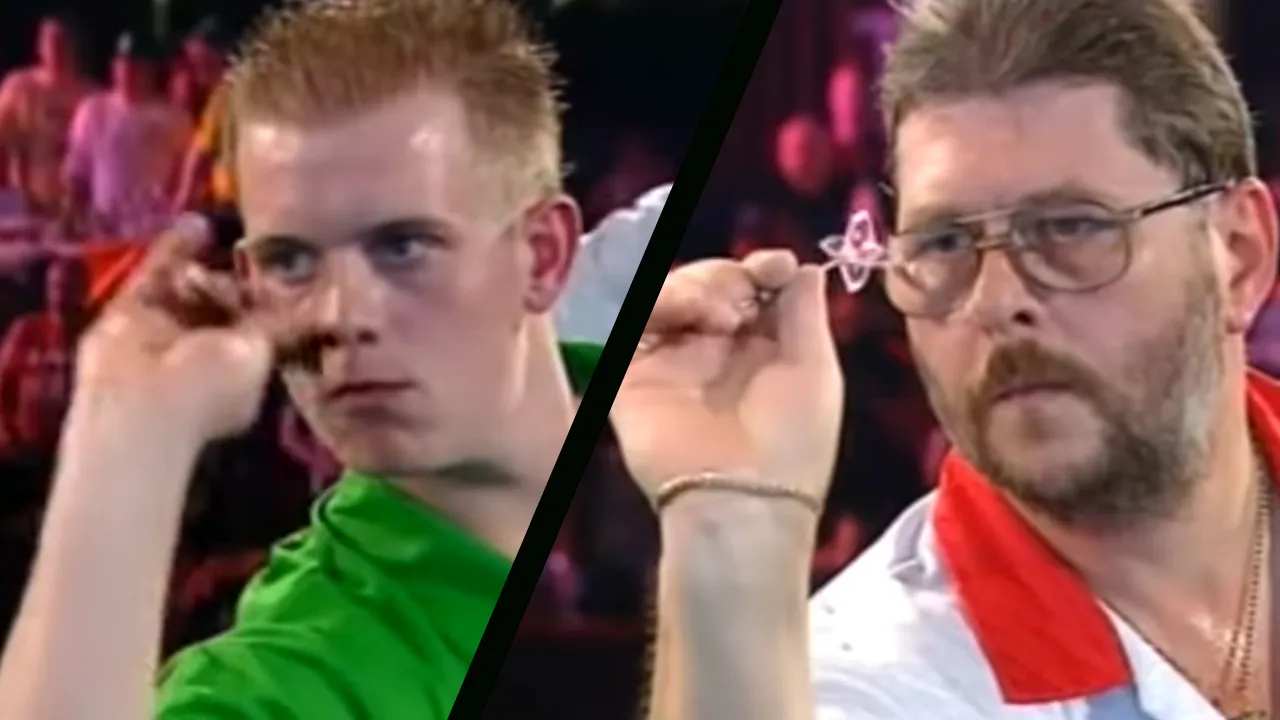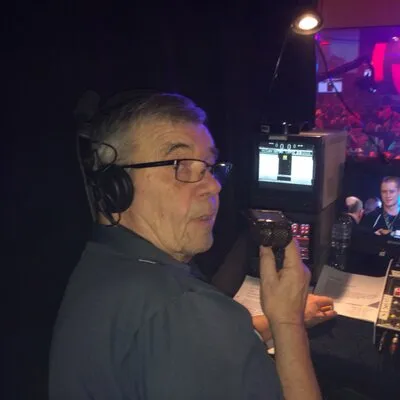DARTS THROWBACK: Anderson gets further Lakeside trauma from Roosenbrand
BDOFriday, 18 August 2023 at 09:30

Gary Anderson and the mystique of Frimley Green: nowadays it is hard to imagine, but there was a time when the god-gifted, Scottish talent travelled to Lakeside and repeatedly turned to dust. Until 2008 he lost in the first round in four of his six appearances. In 2007 he had a top year by winning the International Darts League and World Darts Trophy, so the expectations for Lakeside 2008 were logically high.
In the first round, the then 37-year-old Anderson had to face a Dutchman. Fabian Roosenbrand was only 19 and had never played a TV match before. As a young boy from Enschede competing against the man in form in darts, not much was expected. Yet there was hope for Roosenbrand: in 2005, 2006 and 2007 the World Championship dream ended for Anderson against a Dutchman. In 2005 and 2006 against Van Barneveld, in 2007 against Albertino Essers.
Read also
Doubles
In the first set, Anderson did not do much to turn his Lakeside tide. 'The Flying Scotsman' couldn't get going scoring-wise. Roosenbrand did not suffer from match pressure and won the first two legs in 18 darts. Only the third leg went to Anderson, painfully in 22 darts after he missed many darts on the double. While Roosenbrand did not throw great in the fourth leg, he was able to take the 0-1 lead in sets in 21 darts.
In the second set the level shot up. Suddenly Anderson was finding trebles and we saw the characteristic style in his game. Roosenbrand, as an inexperienced youngster, went along nicely. The first leg of the second set went directly to Anderson in 14 darts. Roosenbrand cleverly broke back in 12 darts with a 121 finish. Anderson was not impressed: he steamed through in 13 and 14 darts to level at 1-1 in sets.
In the third set, Anderson then seemed to cheerfully continue his blazing play. In 14 darts he steamed through. Then his play deteriorated again. Anderson had to leave the second leg to Roosenbrand, who needed 23 darts to do so. That seemed to give Roosenbrand the spark. The next leg went to the man from Enschede in 14 darts and Anderson was able to respond with a fine 120-finish in 15 darts. In the fifth leg, Anderson inexplicably sank, and Roosenbrand could take the set win mainly thanks to a 180 in 19 darts. 1-2.
Read also
Changeability
Up and down went Anderson's game, both on his doubles and scoring. Every time you thought: "Pfoh, now he's in a position to win!", the Scot again had a dip. In the fourth set, Roosenbrand dropped off again. Anderson scored, where Roosenbrand struggled to hit triples. In 16 and 19 darts the Scot made it 2-0 in the set, then finished it off with a fine 12-darter for 2-2 insets. The best leg of the match. Remarkable: after this set, Roosenbrand meanwhile had seven bounce-outs in the match.
After four sets, the statistics were shown. Anderson scored 108.6 average on the first nine darts, and Roosenbrand 92. Dutch commentator Nieuwlaat said in his comments, "Normally you can't lose with that." But if we look at the doubles, we see why Anderson was in trouble. Only 9 out of 39 doubles hit for Anderson: Roosenbrand, on the other hand, was solid with 7 out of 17 doubles.
Read also
In the fifth set, Anderson seemed to have a taste for it. He scored well, set himself a finish within four innings and was out in 18 darts without any problems. However, the engine sputtered again. Anderson could not apply pressure and Roosenbrand got to 1-1 in 18 darts without a problem. After that, it was over for Anderson.
Anderson felt the pressure and could not hit any more trebles, where Roosenbrand threw a treble every turn. With a beautiful 102 finish Roosenbrand went 1-2, after which the man from Enschede finished it off in 14 darts. A coup was committed. The multiple winner of 2007 was out.
The fairy tale lasted only one more round: in the last sixteen, Roosenbrand, who was flu-ridden, lost 1-4 to losing finalist Simon Whitlock.
Read also
De eindfase van de vijfde en beslissende set<br>
claps 0visitors 0
Just in
Popular news
Latest comments
- what a load of crocmedinabello19-02-2026
- So,it's a rubbish league,waste of time. Just put 8000 people in a building every Thursday,get them all drunk,and wonder why it's a complete joke. And forget every other player apart from 8. It's a ridiculous,inane,and needless so called competition.rick6718-02-2026
- Sorry,I've never been a professional darts player,but obviously from your comment,you have. So, going to your reply, you're blaming the management,not the player? So in that respect,he should get a different manager? That's basically all your comment is saying. Don't let him do money makers,which Barney said is easy money, instead of tournaments? Shake hands instead of trophies? Well I guess the manager knows best,as he has a big cut!rick6716-02-2026
- Sorry Mr rick67, erm what punditry credentials do you have to comment on a pundit? There's a reason why many top professionals have management teams. They know how to manage schedules etc so the players can just play. And how is Edgar wrong? Last year MVG failed to qualify by missing too many tournaments and underperforming. He's repeating the error this year so Edgar is right In calling this out.BandB15-02-2026
- Just get of Mardle,I didn't pay to watch him,and I don't want him for free! Let's see,how many world champions,either code,did you win? None! Now mason does it more as a player who was a floor player than you were putting pineapple on your shirt. Mardle,just go,you over inflated ego may follow. Tell you what,get on the seniors tour,and show everyone how good you weren'trick6715-02-2026
- Sorry Mr Edgar,erm what have you actually won to comment? Mvg has had his issues,but you have won a grand total of what? I make that nothing. So how can your comment be justified? Let him do what he likes,you do what you like, and we'll see what you win nextrick6715-02-2026
- Seems to be having a moan for no reason and using “Do-Gooder” as an insult makes no sense. It literally means someone who does good things!Wonker12-02-2026
- Mickey Vs mensur for the world champion? It's starting tomorrow,finishes in January!!rick6711-02-2026
- Oh well that's it then. Both these goofs will expect and demand premier league darts next year after this.richieburnettrocks10-02-2026
- Sincere apologies to Richie, I forgot yesterday, slightly belated but Happy Birthday to the great man. Certainly looking good for 59richieburnettrocks08-02-2026
Loading









